|
An exciting new temporary written word project, “Poetry on the Pavement,” is taking place this spring and summer.
Short poems will be stenciled on sidewalks and pedestrian paths throughout the City of Norfolk. As Poet Laureate of Virginia, I'm honored to lead the selection committee of writers and members of the Arts and Humanities Commission and the Public Arts Commission. The selection committee will choose approximately 20 poems, which will be stenciled on public sidewalks and pedestrian paths throughout the city. Anyone of any age who lives, works, or goes to school in Norfolk is eligible to submit up to 3 poems. Poets will be paid $150 for each poem chosen. Check out the guidelines here, and submit your work on or before SUNDAY, 09 MAY 2021!
0 Comments
Friends, join me at 3:00 PM EDT for a reading (virtual) program through Hampton Public Library, in continuing celebration of April 2021 #NaPoMo (National Poetry Month).
Watch on Facebook live. 5:00 PM EST * Sunday 18 April 2021
Join me for Part 2 of this Reading + Open Mic series on poetry’s role in civic engagement, and in the world at large. Watch the recording here. This April 18 program features poets from the English Department at Old Dominion University; watch live from The Muse's FB event page. Janet Bing * Robbie Ciara * Elaine Fletcher Chapman * Benjamin Naka Hasebe-Kingsley * Drew Lopenzina * Kole Matheson * Kelly Morse * Renée Olander * Alison Reed * Noah Renn * Tom Yuill * Tim Seibles #2021AprilNaPoMo #NorfolkArts #TheMuseWritersCenter #ODUEnglish
Thrilled to be in this WILD & PRECIOUS LIFE Reading Program
with Randall Mann, Matthew Olzmann, and Nikki Wallschlaeger. Joining link here. Mark your calendars! I have to thank my colleague Sheri Reynolds for sending the link to this global community poem/collaborative poetry project, "DEAR VACCINE" sponsored by the Wick Poetry Center at Kent State University & The University of Arizona Poetry Center. . The instructions are simple: - You'll read the starter poem "Dear Vaccine" by Naomi Shihab Nye, then - Add your own line/s in response to a specific prompt connected to the poem. (The only "technical"-ish part of the instructions is to remember to put slashes where you'd put a line break. Also - there was an odd last question about your "Spanish sentence" - I think you can type in any character because apparently it can't be left blank; I just typed in an asterisk.) 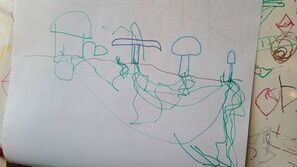 This is something I haven't done in such a long time - but friends and (former) students have asked me if I would, again—because they still remember the month of prompts I posted two, three years ago. So here is a list of (what will be) 30 prompts that I hope will be fun and productive. Come back to this post throughout April as I add to it. Happy National Poetry Month, and happy writing ! 1 Think of something you'd like to give to someone but can't, for whatever reason —distance, pandemic, separation, estrangement, falling out? or maybe just the ordinary silence of not having been in touch for a while. Write a poem about that. 2 I'm fascinated by words which look so much alike, but are separated in meaning by just one letter. For instance, world and word; laughter and slaughter; swarm and warm. Think of a pair and find a way to use it in a poem., 3 There's so much in the news of late about racially motivated hatred and violence directed toward bodies perceived as "other" (black bodies, AAPI bodies). Write a poem of salve and healing for them; write a poem of shelter and care. 4 Write a letter-poem to a part of your body that you may have neglected for some time. 5 If a poem were a plant or animal that could regenerate itself, what would it be? If it doesn't exist in the world, can you imagine one and show readers what it's like? 6 In her book The Hour of the Furnaces, poet Renny Golden echoes the words of Cuban writer José Martí ("Now is the hour of the furnaces/ only light should be seen"), and uses the word acompañamiento to describe a solidarity based on the idea of "walking with" or "being with." Write a poem of solidarity without acrtually using the word solidarity; instead, find (or make up) a word or concept, image or description, that is more organic/indigenous to and respectful of what you describe in your poem. 7 I love the magic that metaphor makes happen. In part, this sense of magic is produced through a method I call surreal juxtaposition, when two or more unlike elements are brought into sharp and immediate overlay. I also see this used in surrealist art (like that by, say, Odilon Redon, Remedios Varo or Leonora Carrington). Clouds begin to float out of a wardrobe in "Mimetismo;" "The Eye, Like a A Strange Balloon, Moves Toward Infinity." Write a poem using surreal juxtaposition as a way of thinking about or showing its subject. 8 When my family and I visit Chicago (as we did two summers ago), we usually visit either the Art Institute or the Museum of Contemporary Art, or both. One work that struck me consisted simply of the phrase "time isn't real" painted across the canvas. Write a poem in which you play with time: indefinitely suspend it, advance it, slow it down, stop it, disguise it, randomize it... Open a poetry book to any page; incorporate in your own poem the line that you land on there. 9 Write a poem in which every line (or every other line) is a made-up title in an invented playlist. In the title of this poem, include what you've made such a playlist for. 10 Imagine that any one of the words we use today disappears from usage. As its curator or archivist, write a poem about some of the histories of this word. 11 Write a self-portrait poem, with some form of rescue in it. 12 Eggs are easy, a writer once told me (referring to her go-to for whipping up a fast meal out of practically nothing). What about a difficult (or complex) food? What would that be for you? Write about it. 13 Lucky, unlucky... Or just a baker's dozen? In grade school history classes, we learned about "Trece Martires" (13 Martyrs) - 13 Filipino patriots executed by the Spanish colonial government in 1896. In some countries, an end of year bonus given to government employees is sometimes called "13th month pay." Triskaidekaphobia is the fear of the number 13; and Paraskevidekatriaphobia is the fear of Friday the 13th. Write a poem on the number 13, incorporating a formal element that you might also build on the idea of 13. 14 Vintage postcards, old photographs, sepia-tinted portraits have an unmistakeable aura of "pastness" about them. Look for one such image (whether from family photo albums, or more randomly sourced). Write a poem in which you write yourself into the scene/write from inside of the image. 15 In "The Story of a Letter," Filipino writer Carlos Bulosan tells of a letter written by his brother Berto that took years to arrive at its intended recipient because the latter could not read English. The story of the letter's trajectory until its contents are finally decoded is a bittersweet reflection of the conditions faced by those who live in the diaspora. Write a letter-poem conveying some urgency you feel in the moment, even though you cannot be sure it will ever reach its destination. 16 A few clicks on the computer, an hour or two later— and a shopper delivers your groceries or a takeout order or a coffee or boba to your door. You can still go into a cafe and order your sandwich and latte. Are there fewer workers behind the counter than in the "before time?" Are they perhaps trying to cover more tasks? Jericho Brown's "Say Thank You Say I'm Sorry" is such a beautiful ode to those whose invisible labors sustain us in so many uncountable ways, especially during this pandemic. Write a poem making visible someone or something who/which is typically rendered invisible or in some way taken for granted. 17 If you could put a poem on the pavement, what would you write? Here is an actual project you can send that poem to: Poetry on the Pavement Project, Norfolk. 18 Did you know that a former OED editor who'd worked for 11 years there had secretly deleted thousands of words from the Oxford English Dictionary? And did you know that the Oxford Junior Dictionary had removed around 50 nature-related words? One response to the latter is Robert Macfarlane's The Lost Language (illustrated by artist Jackie Morris). Reviewer Arly Eversen decrbes it as a "...“spell book” with the “old magic of naming” ...[to] conjure back names and species headed toward erasure.") What words would you miss most if they were taken out of the language that you know and speak and read now? Make a list of some of those words. Select 1 or a few to turn into odes. 19 Science tells us that "...mycorrhizal networks, also known as common mycorrhizal networks or CMN) are underground hyphal networks created by myrcorrhizal fungi that connect individual plants together and transfer water, carbon, nitrogen, and other nutrients and minerals." Our nearly four-year-old grandson Oliver, who already loves nature, art, and books/reading (and snacks) in a big way, recently drew this picture of mycorrhizal networks which is kind of like mushrooms holding hands beneath the soil. Write a poem in which you reach beneath the soil of the subject/s on the surface to reveal how they are connected in a deep and sustaining way. 20 Make a list of nouns related to machines or mechanical objects. Make a list of verbs related to natural objects or processes. Reverse their functions (use nouns as verbs and verbs as nouns). Use some of these in a poem. 21 Verdict. From medieval times, its etymology takes us through the Middle English verdit (c. 1300), "a jury's decision in a case," then through the Anglo-French verdit meaning "sworn testimony, affidavit; judgment, written record of a verdict." The root is ver, veir, meaning true; a solemn and trustworthy saying or report. Even if all the facts pointed to the truth, why did we all wait a day ago for that verdict as if there were a greater chance of the truth being stricken down? There is still a long way to go. But for now, for this moment, write [about] something that seems small and insignificant, but is fiercely and unimpeachably true. 22 Breath, air. How can we get more of it into language, into a poem? Open the windows and doors. Let great lungfuls of it in. It has been so long. 23 So much seems heavy in our hands, hearts, minds. How to set down some of the weight? Write an anti-elegy. 24 There was only one type of after-shave that my father would use: Old Spice (in those milky ceramic-like bottles with the grey plastic stopper). When she drank milk (not often), my paternal grandmother would insist on Bear Brand (Marca Oso) - it came in tins wrapped in a parchment-like printed outer wrapper; I'd get to keep the wrapper, and she'd punch a hole in the top then pour it straight out of the can into a glass. Think of an object that you've come to firmly associate with someone you know. Let it lead you into a poem (which may not necessarily be about the person in your memory). 25 What was your secret name? Did you have one? If not, give yourself one - in a poem. 26 I and We. We're all born into a context. Think of a specific practice or thing that you could say you share with others from your community/tribe (what and who are they?) and write a clearly focused poem on this in no more than 14 lines, though your poem does not have to be a sonnet. 27 When I was a child, I used to love listening to a radio program that came on at 6:00 PM, called "Dagiti Sarsarita ni Uncle Pete" ("The Stories of Uncle Pete"). The stories the program character read ran the range—from folk and fairy tales to more contemporary pieces specifically written for the show. But I loved all the sound effects that were created for radio: the creaking of pulleys, the slamming of doors, the tinkle of ice in a glass, the clop-clop-clop of horses' hooves on the road. They completed the feel of verisimilitude, and it sounded almost like another world (that of the story) was just trapped inside this thing called a transistor radio. Write a poem that is a soundscape of one particular moment in your life, or in some experience that remains with you. 28 In craft classes and worshops, there is inevitably talk about the didactic and how it is a stance that's considered potentially deflating of the best energies of poems. How then can we make space in the poem for an insight we'd like to share, a hard-won truth, a vision? Joanne Diaz does this so beautifully in her book aptly titled The Lessons; one of the poems I love from it is "My Mother's Tortilla." Write a poem with a "lesson," without being overtly didactic. 29 Penultimate. It's the second to the last day of 2021 #NaPoMo. Which doesn't mean we can't celebrate/read/write poetry all throughout the year. In any case, write about the approach of an end; write a poem of imminence, or of "nearly." 30 As I'm writing this there is a shamble of books and papers strewn about my writing desk/teaching space, which I am trying to clean/spruce up. I moved one of two vertical bookshelves to the edge of the wall behind me, because I'm thinking I need some green— some plants— in the space it used to occupy by the window. Write a poem with green in it; with breathing and with space. |
"In these bruising days, Archives
June 2024
Categories |
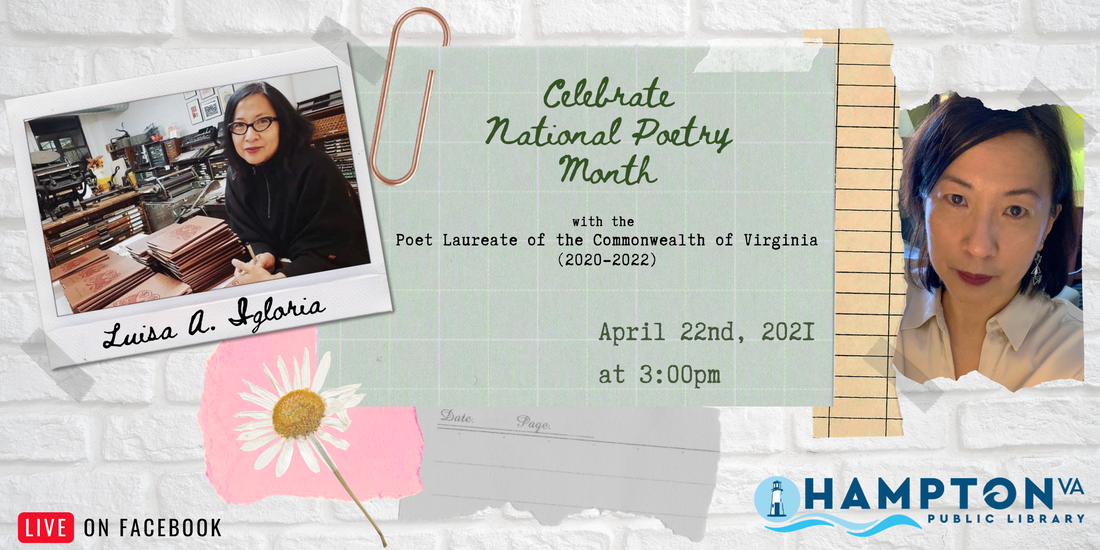
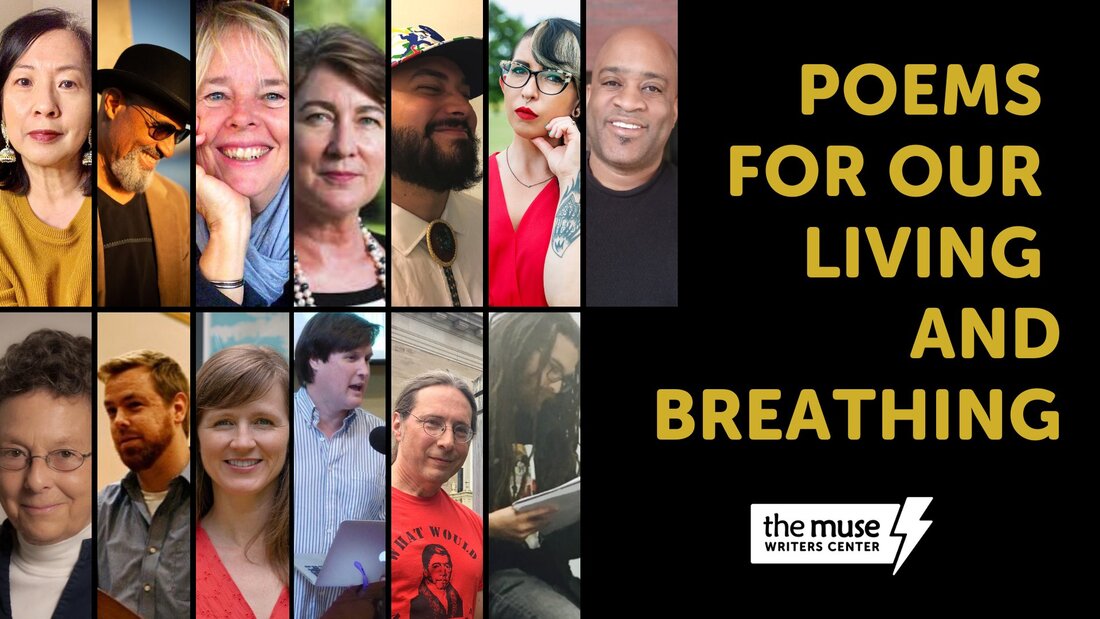

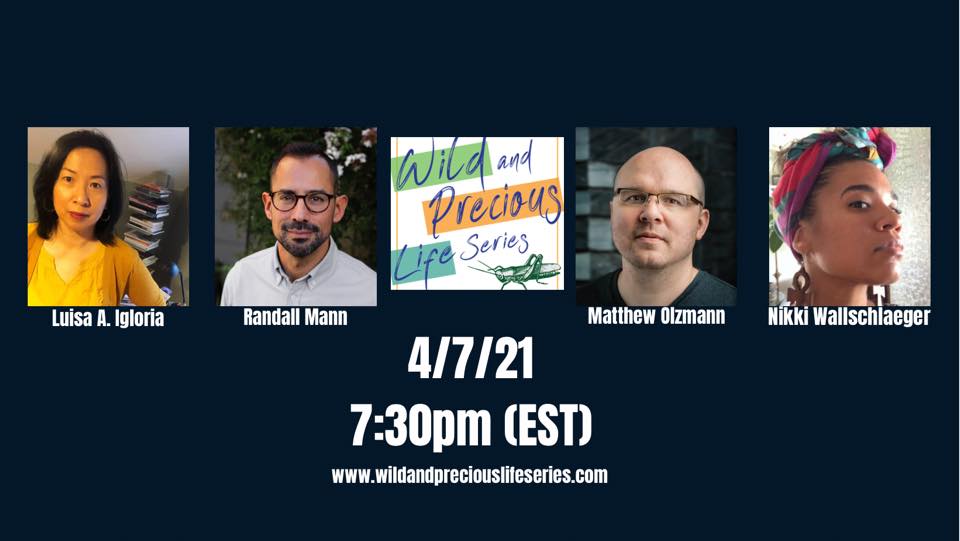
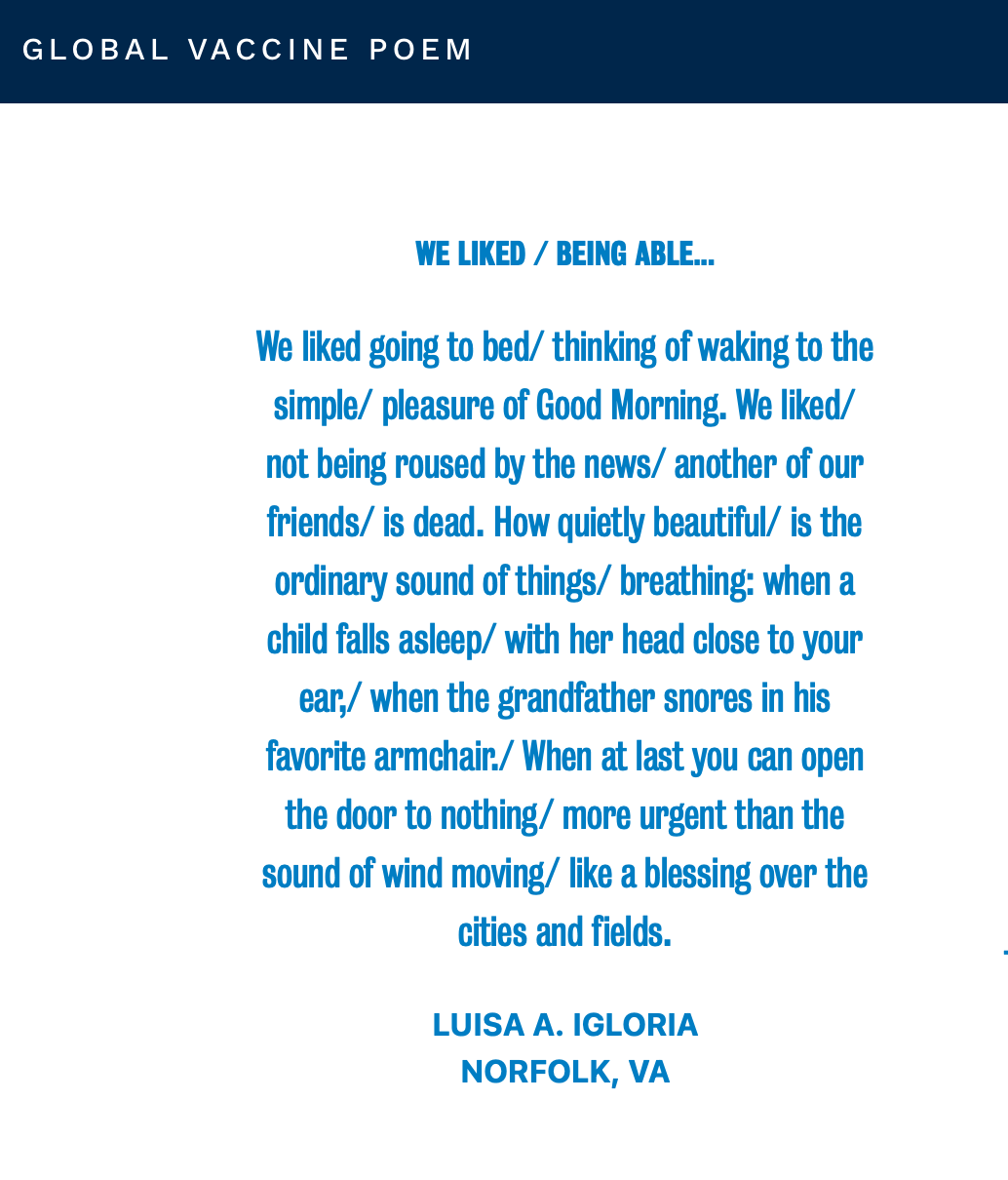
 RSS Feed
RSS Feed